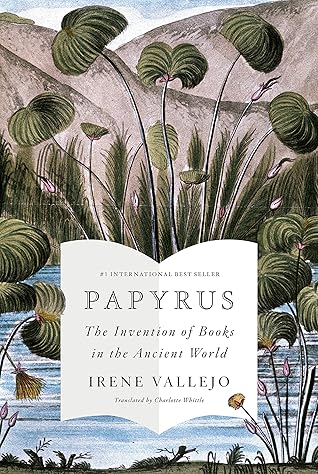More on this book
Community
Kindle Notes & Highlights
Read between
December 31, 2024 - January 8, 2025
“For him that steals, or borrows and returns not, a book from its owner, let it change into a serpent in his hand and rend him. Let him be struck with palsy, and all his members blasted. Let him languish in pain crying aloud for mercy, and let there be no surcease to his agony till he sing in dissolution. Let bookworms gnaw at his entrails in token of the Worm that dieth not. And when at last he goes to his final punishment, let the flames of Hell consume him for ever.”
“Oh, that the heavens were made of parchment and the sea of ink.”
“We know how to tell lies that sound like truths, and we know how to sing the truth, when we will.”
“The only worthwhile thing is education,” writes one follower of this cult in the second century. “All other riches are trivial and human and are not worth the effort to seek them. Noble titles belong to our ancestors. Wealth is a gift of fate, who gives it and takes it away. Glory is fickle. Beauty is fleeting. Health, inconstant. Physical strength falls prey to illness and old age. Instruction is the only thing we have that is immortal and divine. Because only intelligence is rejuvenated by years and time, which steals away all things, but adds wisdom to age. Not even war, which sweeps and
...more
Every half minute, a new book is published. If we assume a price of twenty-two dollars and a thickness of two centimeters, the annual addition to Mallarmé’s library would cost over twenty-two million dollars and take up some twenty kilometers of shelves.
“When a book burns, when a book is destroyed, when a book dies, something inside us is irremediably maimed…When a book burns, with it also die all the lives that made it possible, all the lives it contains and all the lives to which the book could, in the future, have given warmth and knowledge, intelligence, pleasure, and hope. To destroy a book is literally to murder the soul of man.”
The best of all possible worlds is never the best for everyone.
Future generations have the right to demand the story of the past from us.
Nor is it coincidental that, beyond the traditional genres, escapist and consumerist texts also became popular (including treatises on sports and cooking, erotic tales with explicit illustrations, texts on magic or the interpretation of dreams, horoscopes, farces, and stories told in vignettes that were forerunners of the graphic novel).
Books make us heirs to all stories: the best, the worst, the ambiguous, the problematic, the double-edged. Having access to all of them is vital for critical thought; it allows us to choose.


